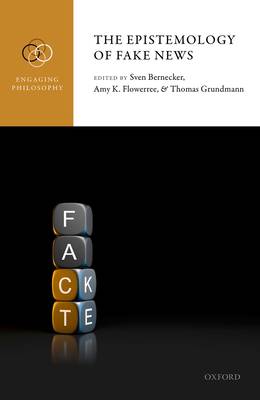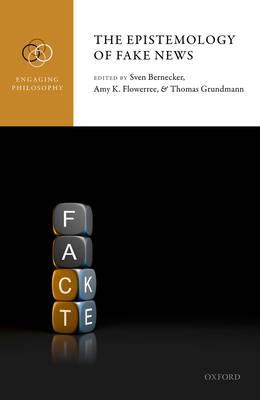
- Afhalen na 1 uur in een winkel met voorraad
- Gratis thuislevering in België vanaf € 30
- Ruim aanbod met 7 miljoen producten
- Afhalen na 1 uur in een winkel met voorraad
- Gratis thuislevering in België vanaf € 30
- Ruim aanbod met 7 miljoen producten
Zoeken
Omschrijving
News is vital for a healthy democracy. Collective decision-making requires accurate, reliable information. Nevertheless, much of the information we encounter is inadequate for this task. And some--peddled by politicians, profiteers, bots and algorithms--is fake. Social media platforms and emerging technologies allow fake news to dominate our information landscape. An adequate understanding our current information landscape calls for a new discipline, the epistemology of fake news. The epistemology of fake news studies knowledge communication under imperfect conditions. This book is the first sustained inquiry into the new epistemology of fake news. The chapters, authored by established and emerging names in the field, pursue three goals. First, to analyse the meaning and novelty of 'fake news' and related notions, such as 'conspiracy theory.' Second, to discuss the mechanics of fake news, exploring various practices that generate or promote fake news. Third, to investigate potential therapies for fake news.
Specificaties
Betrokkenen
- Uitgeverij:
Inhoud
- Aantal bladzijden:
- 384
- Taal:
- Engels
- Reeks:
Eigenschappen
- Productcode (EAN):
- 9780198863977
- Verschijningsdatum:
- 10/08/2021
- Uitvoering:
- Hardcover
- Formaat:
- Genaaid
- Afmetingen:
- 152 mm x 185 mm
- Gewicht:
- 793 g

Alleen bij Standaard Boekhandel
+ 418 punten op je klantenkaart van Standaard Boekhandel
Beoordelingen
We publiceren alleen reviews die voldoen aan de voorwaarden voor reviews. Bekijk onze voorwaarden voor reviews.










